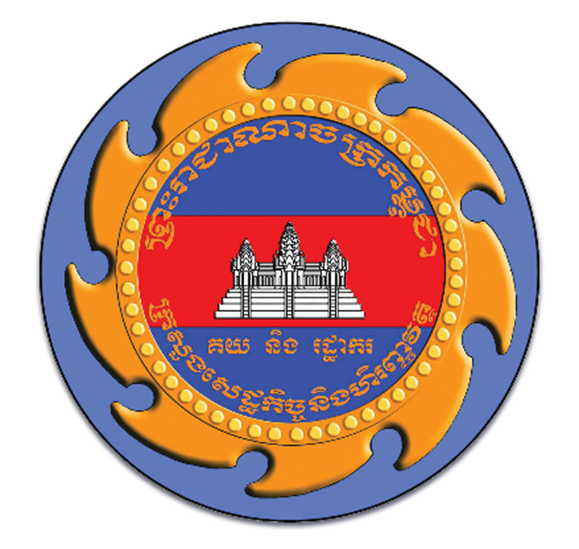Issue Description
As part of its commitments to the World Trade Organisation (WTO) and the Association of Southeast Asian Nations (ASEAN), the Royal Government of Cambodia (RGC) aims to enhance the move towards greater digitalisation of trade documentation.
In 2019, the Ministry of Economy and Finance launched the Cambodia National Single Window (CNSW) with the vision of creating a comprehensive, online platform where traders could upload and process all documentation necessary for import and export procedures. This would involve onboarding all of Cambodia’s ministries and other government agencies involved in the issuing and processing of said documentation, such as phytosanitary certificates or certificates of origin. This would also increase the scope of Cambodia’s e-government.
The roll out of the CNSW is meant to go through three gradually increasing phases, from set up to full implementation.
Currently in Phase 2, the CNSW has seen the onboarding of five key government bodies that issue licences, certificates, permits and others (LCPOs), according to Sub Decree 17 from 2020: the Ministry of Health, the Ministry of Agriculture, Forestry and Fisheries, the Council for the Development of Cambodia, the Ministry of Commerce, and the Ministry of Science, Industry and Innovation.
However, in terms of service delivery coverage, the use of CNSW is still limited to prohibited and restricted goods, leaving out other key trade documents such as cargo manifests and arrival reports. The CNSW has also been connected via a gateway mechanism for data exchange with other electronic platforms used by trade stakeholders: Customs document uploading and submission portal ASYCUDA, the ASEAN Single Window, airlines and carriers to receive cargo manifest information, and banks for service charges. Importantly, e-signatures are still not currently implemented.
Finally, despite the onboarding efforts regarding other government agencies (OGAs), the CNSW is still used predominantly by the General Department of Customs and Excise (GDCE), with the vast majority of LPCOs on the platform being issued by this body.
Consultations with the private sector suggest that use of the CNSW is still limited mostly due to the inability to upload key trade documentations such as cargo manifests on the platform, but also due to occasional difficulties in using the system. Despite the meaning of a “Single Window”, businesses need to use multiple platforms to process their shipments in and out of the country.
Phase 3 will involve the onboarding of the 11 remaining government agencies laid out in Sub Decree 17 by 2025, covering a total of around 1,500 relevant documents.
Impact on business
We warmly welcome the progress that has been made by the RGC in implementing the CNSW. However, the current challenge is how to ensure that improvements to business operations become even more substantial rather than superficial.
The two key challenges are: firstly, to ensure that the onboarding of the remaining line ministries and agencies is accompanied by an effective adoption of electronic document submission practices by government officials in these bodies; secondly, to listen to the feedback of the CNSW’s users on suggested improvements for its usability and put in place a workstream to follow through with those improvements.
Without an effective CNSW onboarding, businesses still face duplication and high costs for processing trade-related documents. Moreover, user difficulties with the CNSW might discourage them from adopting it as their go-to channel for processing documents. Ultimately, an incomplete roll out of the CNSW carries with it the risk of preventing Cambodian businesses from taking full advantage of digital tools and hampering the country’s trade integration agenda.
Recommendation
- Expand coverage of the Cambodia National Single Window.
In light of these challenges, we respectfully recommend that the Royal Government of Cambodia:
– Complete the onboarding of remaining ministries and agencies onto the CNSW and implement effective measures (such as special operating procedures) to ensure officials in each of these bodies fully take advantage of the opportunity to transfer their share of trade documentation processing and submission onto the CNSW; we also recommend that the RGC implement the use of electronic signatures on the CNSW;
– Expand the coverage of LPCOs on the platform to include not only prohibited and restricted goods but also key trading documents such as cargo manifests;
– Consider engaging in constructive dialogue with a representation of CNSW users from the private sector to listen to feedback on the usability of the platform and discuss ways to enhance its usability.
By ensuring a complete and substantive roll out of the CNSW, businesses will be able to upload and process a larger share of trading documents electronically, saving them the need to visit several different locations in person and doing away with printing and other paper-based procedures. The fact that the submission platform is consolidated across all documents also saves time. Cambodia will become more attractive to traders and will ultimately benefit from enhanced trade flows and more trade integration.
Royal government of Cambodia
Initiative from Eurocham: The issue has been raised by the Transport & Logistics Committee within The White Book edition 2024 in the Recommendation No. 4.

On the 7th of May 2024, the Royal Government of Cambodia officially launched the National Single Window (NSW). This launch formalizes Phase 3 of the NSW, indicating its full implementation. At the time of the launch, 16 government agencies are integrated into the NSW.
Initiative from Eurocham: During the 1st Europe-Cambodia Public-Private Sector Dialogue held on September 17, 2024, the high logistics costs in Cambodia and the hurdles of cross-border trade were emphasized as critical issues. These intricate and costly processes significantly impede the growth and success of SMEs, as their ability to participate in import and export activities is hampered by bureaucratic barriers at borders. Regarding the National Single Window import/export permits from relevant government agencies are extreme pain points for businesses.

In response, H.E. Sun Chanthol requested EuroCham to pinpoint the key problems contributing to these complex processes and costs. The goal was to tackle these core issues with the appropriate authorities and to present updates at the subsequent Europe-Cambodia Public-Private Sector Dialogue.
At a courtesy meeting between EuroCham and Prime Minister Hun Manet on September 19, 2024, Mr. Tassilo Brinzer, Chairman of EuroCham Cambodia, raised the topic of high logistics costs and the related challenges, including the ones related to the NSW.

Prime Minister Hun Manet acknowledged the hardships arising from these complicated processes and urged EuroCham Cambodia to compile their suggestions and work together with Neak Oknha Rithy Sear, an advisor to the government.
Subsequent to the meeting with the Prime Minister and the 1st Europe-Cambodia Public-Private Sector Dialogue, EuroCham and its Transports & Logistics Committee dispatched a letter to the relevant ministries seeking high-level intervention and highlights the challenges related to the National Single Window. You can view the letter here.

The Council for the Development of Cambodia (CDC) invited EuroCham to deliver a presentation at the 7th session of the National Logistics Council on the 16th of December 2024, on the challenges for business operations in Cambodia related to Transport & Logistics.

The Council for the Development of Cambodia (CDC) invited EuroCham to deliver a presentation at the 7th session of the National Logistics Council on the 16th of December 2024, on the challenges for business operations in Cambodia related to Transport & Logistics.
EuroCham Cambodia participated in the 7th National Logistics Council meeting. EuroCham representatives highlighted obstacles facing businesses in Cambodia, emphasizing the importance of improving logistics infrastructure and streamlining processes to boost competitiveness and attract investment.
EuroCham highlighted that some ministries are not fully on board, and manual entry of information is still required on the platform.
You can find the presentation HERE.
On April 7, 2025, during the Cambodia-Europe Public-Private Sector Dialogue, co-chaired by EuroCham Cambodia and the Council for the Development of Cambodia, Mr. Bunthan Suy gave an update on the coverage of the Cambodia National Single Window. He explained that the private sector had not observed much progress on it and then requested the Royal Government of Cambodia to publish real-time transaction statistics from the Single Window platform. This should include: (1) Number of ministries currently active, (2) Type and volume of permits or licenses, and (3) Number of licenses handled outside the platform. During a speech by Samdech Thipadei Hun Manet at the Ministry of Civil Service on March 20, 2025, it was stated that Cambodia has over 3,000 licenses managed across government agencies. Publishing these statistics will help the private sector understand where digitization is already available. EuroCham also suggested strongly requesting the government to set clear timelines for onboarding all relevant ministries and agencies into the Single Window—and to track and report this progress publicly.

The representative from the GDCE stated that the transshipment regulation will be open to input from the private sector. He confirmed receipt of the recommendations and assured that they will be forwarded to the GDCE for consideration.
His Excellency Deputy Prime Minister Sun Chanthol emphasised the government’s urgent commitment to taking swift action to retain all investors in Cambodia.
National Counterparts

General Department of Customs and Excise
Contributors

Mr. Suy Bunthan
Chairman

Mr. Seng Vichet
Vice-Chairman

Mr. Matthew Owen
Vice-Chairman

